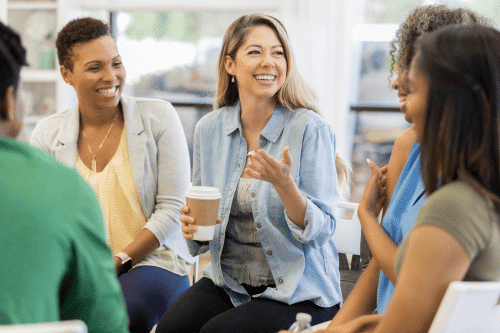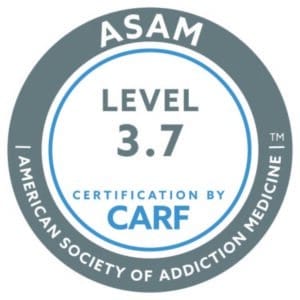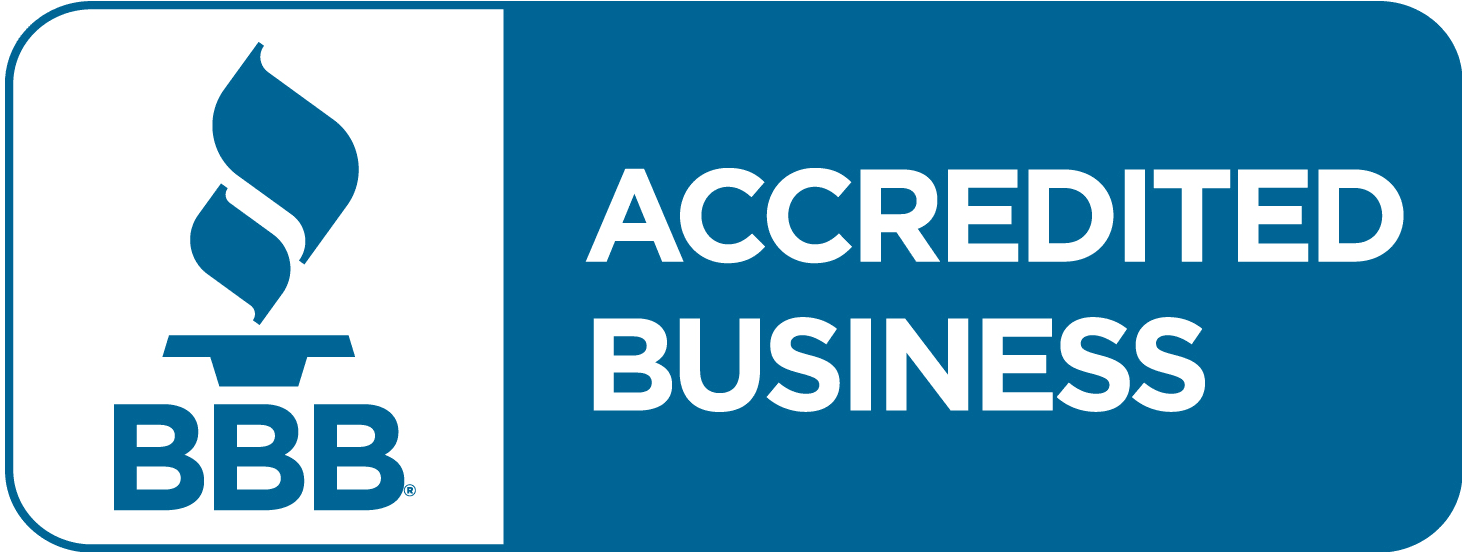Drug Addicts Anonymous: Structure, Meetings, and Support
Understanding DRUG ADDICTS ANONYMOUS (DAA)
Drug Addicts Anonymous (DAA) is a 12-step modeled program that supports individuals in recovery from drug addiction. It is an abstinence-based group focused on helping those with substance use disorder stop using illicit drugs and live a new life free from addiction.
This self-help group provides a path to recovery based on personal growth, community support, and spiritual awakening. DAA is built around the same structure as Alcoholics Anonymous and follows the 12-step program approach.
Brief History of DAA
DAA began with individuals who had experience with addiction and saw a need for a program centered on drug addiction. It was created using the same 12-Step approach used in Alcoholics Anonymous, Cocaine Anonymous, and other 12-step modeled programs.
Core Principles and Philosophy
The DAA program teaches the anonymity principle, honesty, and a conscious contact with a higher power. It encourages individuals to confront the truth about their addiction through a fact-finding and fact-facing process, leading to long-term recovery from drug addiction. Members share a desire for freedom from active addiction and commit to helping others recover.
Related Support Organizations
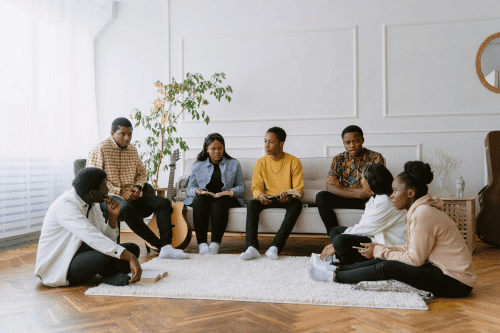
Narcotics Anonymous (NA)
Narcotics Anonymous is another global 12-step program focused on individuals in recovery from drug abuse and addiction to drugs. It shares many similarities with DAA and is widely accessible.
Nar-Anon for Families
Nar-Anon supports family members and friends affected by drug addiction. It offers help with the emotional toll of addiction, family therapy sessions, and support through the recovery journey of a loved one.
Narateen for Younger People
Narateen is for teenagers impacted by a parent or family member’s addiction. It addresses the needs of children of addicts and promotes emotional healing.
How to Find DRUG ADDICTS ANONYMOUS MEETING Options
In-person Meeting Locations
DAA holds in-person meetings in community centers, churches, and treatment facilities. Each meeting venue hosts discussion meetings, book study sessions, or speaker meetings.
Virtual Meeting Options
DAA also offers virtual meetings, online meetings, and phone meetings. These help people who may not be able to attend in person, such as clean addicts, sex addicts, food addicts, or those dealing with a mental health disorder or anxiety addict challenges.
Difference Between “Closed” and “Open” Meetings
- Closed meetings are for people who identify as drug addicts and are focused on group discussion.
- Open meetings welcome anyone, including family members, addiction counselors, and those with addiction concerns.
The 12-Step Program
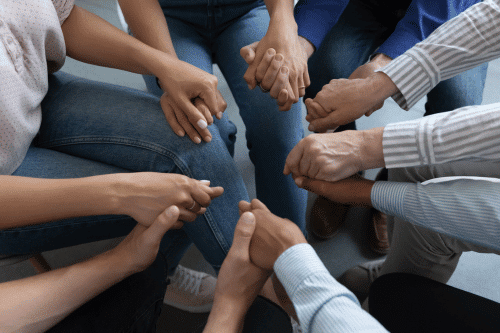
Steps Explained
The DAA 12-step program includes admitting powerlessness over drugs, seeking help through spiritual awakening, and making amends. These steps form a structure for the recovery process and are used by many 12-step interventions.
Importance in Recovery
The 12 steps help individuals address addiction from friends, make peace with extended family, and grow spiritually. They are a key part of evidence-based drug addiction rehab programs.
What to Expect at a Meeting
Meeting Formats and Etiquette
Meetings follow formats such as discussion meetings, book study, or speaker meetings. Respectful listening is expected. Members may contribute voluntary contributions to cover basic meeting expenses.
Sharing Experiences and Stories
Attendees often share their experience with addiction, including stories of drug abuse, alcohol abuse, or recovery from food addiction or depression addiction. This builds trust in the addiction recovery community.
The Role of Community Support
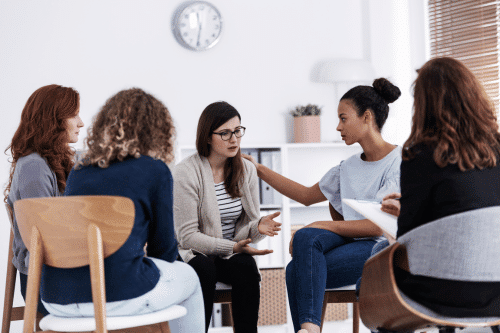
Building a Support Network
Support from individuals in recovery, addiction counselors, and other members helps strengthen recovery. DAA connects people going through similar struggles, offering consistent support during critical times in recovery.
Strengthening Recovery through Community
Having a strong group helps prevent relapse and reinforces progress, especially during times when addiction worse symptoms return. Community plays a major role in recovery from drug addiction.
Locating Treatment Centers
Researching Local Options
Finding drug addiction treatment starts with researching addiction resources. Look for accredited treatment centers offering addiction treatment options that match your needs.
Featured Treatment Centers
Opus Treatment in Orange County provides evidence-based drug addiction rehab programs with support from licensed professionals. We work with those recovering from addiction to drugs, alcohol, and co-occurring mental health disorders.
Insurance and Rehab Coverage
Navigating Insurance Options
Health insurance providers often cover services under essential health benefits. Check with your plan or use a Personalized Matching Process to explore options.
Understanding Financial Assistance
Some programs may receive advertising fees or fees from purchases made through online resources. At Opus, we help clients understand insurance coverage and any available financial assistance to reduce the cost of addiction treatment.
Alternative Support Programs
Holistic and Non-Traditional Approaches
Alongside 12-step recovery, some people find healing in Catholic addiction treatment centers, Christian addiction treatment centers, or other programs that respect individual religious beliefs and offer creative freedom.
Online Support Groups and Resources
Tools like an online treatment locator, Addiction Resources, and the Mental Health Services Administration help people find support groups, treatment, and a mental health counselor.
Impact of Addiction on Families
Emotional and Financial Effects
Drug addiction impacts the entire family, leading to emotional trauma, financial strain, and damage to relationships. Abuse victims and extended family often suffer during a loved one’s addiction.
Support Resources for Families
Groups like Co-Dependents Anonymous, Nar-Anon, and Student Recovery Group offer help for family members navigating addiction space.
Practical Resources for Immediate Help
Hotlines and Helpline Numbers
- SAMHSA Helpline: 1-800-662-HELP (4357)
- Opus Treatment: 630-425-4078
Online Resources and Directories
Find help through the National Institute on Drug Abuse, American Addiction Center, or our contact form. Get immediate access to treatment, support, and information about the emergency department treatment process.
If you or someone you know is dealing with addiction to drugs or alcohol, there is help available. Opus Treatment offers structured, supportive care and a strong recovery community. Reach out through our contact form or call today.
Frequently Asked Question’s
1. What is Drug Addicts Anonymous (DAA) and how is it different from Narcotics Anonymous?
Drug Addicts Anonymous (DAA) is a 12-step program designed for individuals recovering from drug addiction. It focuses specifically on addiction to drugs, while Narcotics Anonymous (NA) includes support for people recovering from all forms of substance use disorder. Both programs follow the 12-step approach but operate independently. Some individuals attend both depending on availability and personal preference.
2. Do I have to pay to attend DAA meetings?
No. DAA meetings are free to attend. There are no membership fees, and the program relies on voluntary contributions to cover basic meeting expenses. Contributions are optional, and no one is turned away for not donating. This structure helps keep the program accessible to anyone seeking recovery from drug addiction.
3. Can I attend a meeting if I’m unsure whether I’m an addict?
Yes. Many people attend their first meeting while they are still questioning their relationship with drugs. Open meetings welcome anyone, including those exploring if they belong in the addiction recovery community. If you’re dealing with drug use or addiction concerns, DAA can be a starting point in learning more about yourself and others who have experience with addiction.
4. Are there online meetings for DAA?
Yes. DAA offers online meetings, virtual meetings, and even phone meetings. These are especially helpful for those who cannot access a local meeting venue or prefer a private setting. Online addiction support has expanded in recent years, allowing more people to join the recovery process from anywhere. Check DAA directories or use an online treatment locator to find current meeting times.
